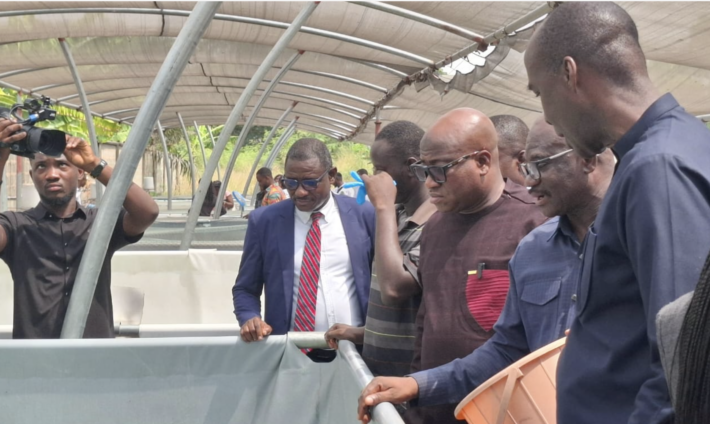Fifteen different research projects being implemented by the Council for Scientific and Industrial Research (CSIR) are on the verge of “extinction” following cutbacks in America’s foreign aid agency spending.
The projects, which the Savanna Agricultural Research Institute (SARI) is implementing as parts of efforts to boost productivity of the agriculture sector, are funded by the United States Agency for International Development (USAID).
The Management of the CSIR expressed concern over the development when Mr Ibrahim Murtala Muhammed, the Minister of Environment, Science and Technology, paid a working visit to the CSIR and some of its institutions in Accra on Tuesday.
The visit formed part of his familiarisation tour to the various agencies under his supervision to apprise himself of their operations.
The SARI is one of the 13 institutes of the CSIR, located in the Tolon District of the Northern Region of Ghana.
The USAID has been supporting SARI to improve the effectiveness of its agricultural research to ensure smallholder farmers in northern Ghana had access to quality seeds and technologies.
Professor Paul P. Bosu, the Director-General, CSIR, told journalists that the Council was exploring ways to continue with the affected projects.
“We are going to have serious shortfalls with the projects that we are implementing. We have to get ourselves ready,” he said, adding that the Council would present a paper to the sector minister to discuss ways to bridge the funding gap.
Other issues discussed included declining donor support, lack of private sector investment in research and development, lack of modern laboratories and facilities, and encroachment on CSIR lands.
The Council briefed the Minister on interventions it was undertaking to swap some of its prime lands to raise funds in support of its operations and solve the funding challenges.
Mr Muhammed expressed delight about those innovations and reiterated his vision to ensuring the commercialisation of their research findings to raise revenue.
He said the CSIR could develop varieties that had the potential to reduce the millions of dollars spent on the importation of essential food items such as rice, tomatoes, and poultry products.
The Minister tasked the various institutions under the Council to present to him a paper and make a “compelling case” to attract funding and investment to boost their operations.
“If we can find a way for some of the institutes to take up the responsibility of providing some of the basic needs of state institutions such as the School Feeding Programme, and build the capacities of our SMEs, we can build upon that,” he said.
Latest Stories
-
Expelled South African envoy accuses Trump administration of racism
17 minutes -
Local Government Minister proposes sanitation levy to address Ghana’s waste management crisis
8 hours -
Central University Vice Chancellor calls for Fee Voucher System to support private universities
8 hours -
Heritage Month Cooking Competition showcases Ghana’s culinary richness
8 hours -
T-bills undersubscribed for 2nd consecutive time by GH¢1.5bn
10 hours -
His finest hour yet: The Bawumia concession and lessons in leadership
10 hours -
EC reschedules nomination for Nkoranza North and South District Level Elections
11 hours -
Energy Minister must recover stolen ECG containers or be held accountable – Ntim Fordjour
11 hours -
CLOGSAG suspends strike over Births and Deaths Registry appointment
11 hours -
Ing. Ludwig Annang Hesse is new president of GhIE
11 hours -
One artiste can’t take Ghana to the top, we must collaborate – Edem
11 hours -
Presidency hasn’t ordered NIB to investigate Akufo-Addo’s travels – Felix Kwakye Ofosu
12 hours -
Edem explains how 2023 motor accident made him lose gigs
12 hours -
Smoke detectors and modern technology: A game-changer in Ghana’s fight against market and home fires?
12 hours -
Provisional results for 2025 WASSCE First Series released
12 hours

